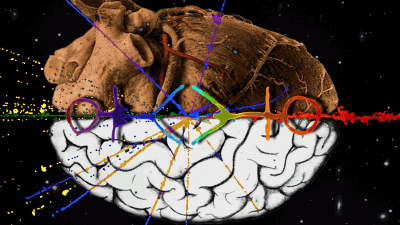Why is "sweet food" delicious?

by.the roof
Many people say "it can not stop eating sweets at all", and sugarIt is strongly addictiveI also know that. Researchers announced the results of research that "Why is the structure of the nerve" as to why human beings taste sweet food deliciously.
The coding of valence and identity in the mammalian taste system | Nature
https://www.nature.com/articles/s41586-018-0165-4
Why Does Sweetness Taste So Good? - The Atlantic
https://www.theatlantic.com/science/archive/2018/05/why-does-sweetness-taste-so-good/561518/
It is said that the basic nature of human beings who prefer sweet things and dislike bitter things has been acquired by long ago people. In times when the supply of food is unstable and it is not always that the same thing can be everyday, the sweet things are often "safe and contains many calories" and bitter things include "poison It is said that there were a lot of things ". From the viewpoint of nutritional supply and toxicity, it is thought that humans have come to eat sweets.
Many tastes are felt in the tongueTaste bud (MIRAI)The organ that senses the taste of food and sends a signal like "This food is sweet" "This food is bitter" to the brain. Columbia University'sCharles ZuckerIn his laboratory, he studied the system and brain structure that perceive food taste, and posted a new paper on science magazine Nature on May 30, 2018.
According to an experiment conducted by Mr. Zucker and others using a mouse, the information of "sweet" perceived by the brain and the information "bitter" is a part in the brain related to emotion processing "AmygdalaIt was found that they were sent through different routes, respectively.

byjessica wilson {jek in the box}
Mr. Zucker wentPast studyThen we did an experiment that "change the part of the neuron that ignites when the mouse eats sweet or bitter things". Mice that changed to the part of the neuron that ignites when you eat bitter things when you eat sweet things started to eat bitter things. Meanwhile, the mouse which changed to the part of the neuron which ignites when eating the bitter thing, the part of the neuron which ignites when eating a sweet thing is not eating sweets.
A research team that found out that the recognition of sweet taste and bitter taste from the past research is very clearly divided in the brain has continued to study the transmission of taste information. Eventually, the research team found that the taste information that reached the amygdala body passes through another neuron with sweet taste and bitter taste.
Therefore, the research team prepared a mouse that prepared neurons that transmit sweet taste and bitter taste to the amygdala to ignite in response to laser light, and conducted an experiment. When a mouse tried to inhale water from an empty water bottle, when a neuron transmitting a sweet taste was ignited, although the mouse actually kept trying to suck water from an empty bottle despite not actually having anything Thing. On the other hand, it turned out that mice that ignited a neuron transmitting a bitter taste when trying to suck water from the bottle did not try to drink any more water.
Next, Mr. Zucker gave the mouse swallowing water and bitter water against the mouse, which administered medicines to suppress the activity of the amygdala and left the function of recognizing sweet and bitter things. As a result, the mouse could distinguish between sweet water and bitter water, but it did not show any attachment to either. In other words, it turned out that the mouse obsessed only for things that the amygdala remained pleasant, regardless of whether the mouth is sweet or bitter.

byMarjan Lazarevski
Mr. Zucker, who found out that the transmission pathway to the amygdala has led to the desire for sweet things, then Zucker talked about how "memories when eating things" is related to the desire for food I am going to investigate. "The experience of having a single oyster leads to an action to avoid eating oysters over the course of a year.What is how it works and how negative negative strong emotions affect long-term likes and dislikes of food It's strange, "Zucker said.
Related Posts:







